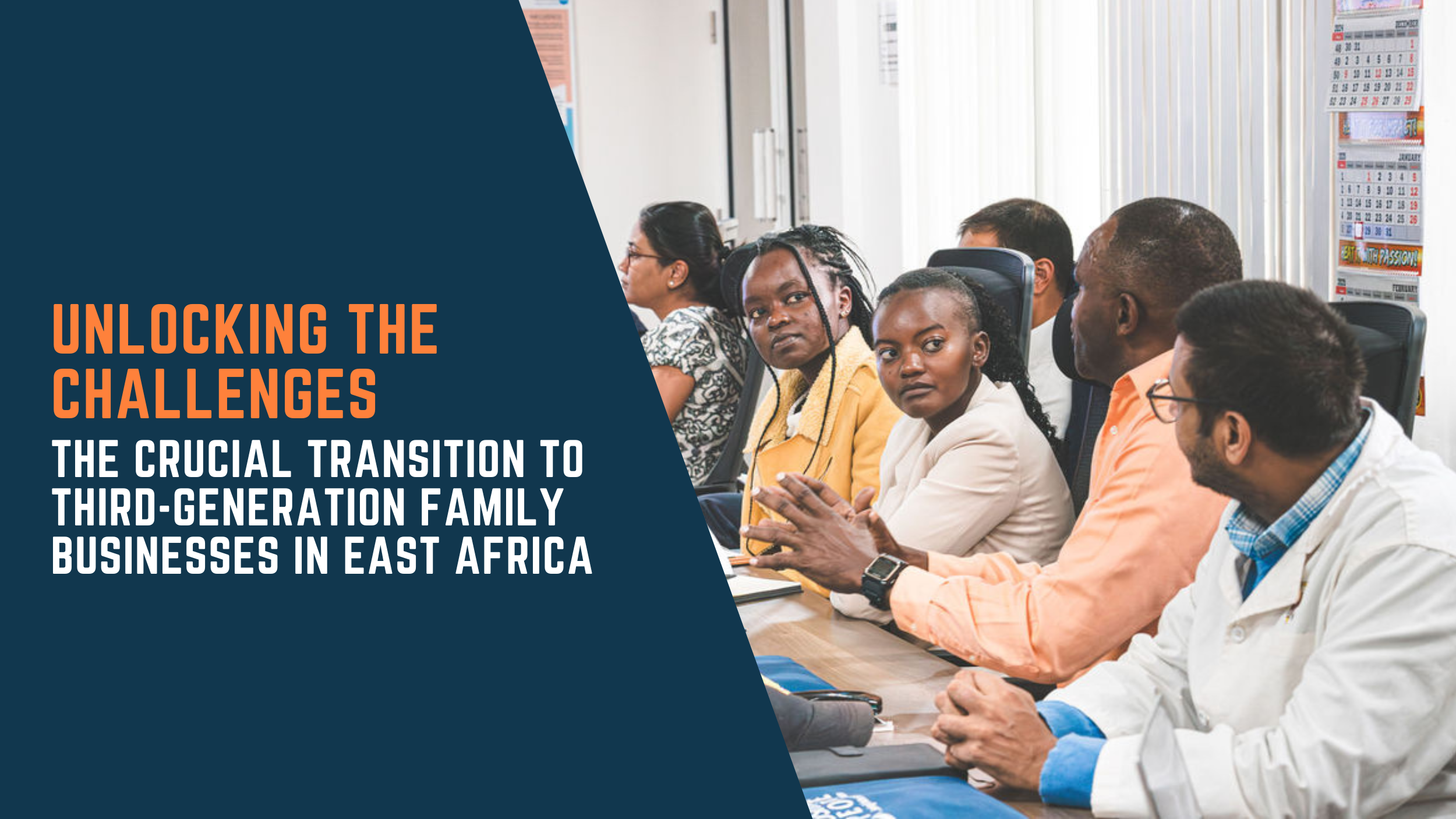Family businesses are the backbone of many East African economies. They provide employment, contribute towards economic growth, and often play a vital role in their surrounding communities and Nation as a whole. However, ensuring the long-term success of these businesses requires careful planning and a smooth transition between generations.
The third generation of family businesses in East Africa faces a unique set of challenges that threaten their sustainability. These challenges include:
- Succession Planning: The lack of clear succession plans is a major hurdle. Many family businesses fail to address the question of who will lead the company after the current generation retires or passes away. This ambiguity can lead to family conflicts and instability prior to and after the current generation moves on.
- Family Dynamics: Family businesses are often intertwined with personal relationships. Conflicts between family members can negatively impact business decisions and hinder growth. Addressing these dynamics requires open communication, clear roles and responsibilities, and professional family governance structures.
- Professionalization: Many third-generation family businesses still operate with informal structures and a lack of professional management. This can limit their ability to compete in today’s dynamic business environment and keep up with changing business landscapes. Professionalizing operations, including implementing clear financial controls and hiring qualified professionals, is crucial for long-term success.
- Innovation and Adaptability: The business landscape is constantly evolving, especially since the introduction of AI and other technology. Third-generation family businesses need to embrace innovation and adapt to changing market conditions. This requires investing in research and development, adopting new technologies, and fostering a culture of innovation to stay on the cutting edge of success.
- Corporate Social Responsibility (CSR): Increasingly, consumers and stakeholders are looking for businesses that are socially and environmentally responsible. This is especially true with young professionals who are looking to purchase goods and services responsibly. Third-generation family businesses have an opportunity to differentiate themselves by integrating CSR into their core values and operations. This brings to life their mission, vision and showcases positive planet impact which enhances authenticity and trust in the brand.
Overcoming these challenges requires a proactive and strategic approach.
- Succession Planning: Family businesses should develop comprehensive succession plans that address leadership transitions, ownership structures, and family governance. This may involve hiring professional advisors and implementing family councils. Keeping open lines of communication also assist to alleviate friction.
- Professionalization: Investing in professional management, implementing robust financial controls, and adopting best practices in corporate governance can enhance the business’s efficiency and competitiveness. This can be done through the business experience of the current older generation, whilst trusting the younger, upcoming generation’s knowledge and experience of the rapidly evolving market.
- Innovation: Encouraging innovation, fostering a culture of learning, and embracing new technologies are essential for staying ahead of the curve.
- Family Governance: Establishing clear family protocols, roles, and responsibilities can help mitigate family conflicts and ensure that the business’s interests align with the family’s long-term goals.
- CSR Integration: Integrating CSR into the business strategy can enhance the company’s reputation, attract talent, and contribute to sustainable development.
By addressing these challenges and embracing best practices, third-generation family businesses in East Africa can not only survive but also thrive, ensuring their continued contribution to the region’s economic growth and prosperity.
At Positively People, we recognize the unique strengths of family businesses and empower each member to contribute to their legacy. We believe in unlocking untapped potential within every family enterprise. We work closely with families to understand their specific needs, define their desired future, and provide the tools and strategies to achieve lasting success. Whether you’re seeking guidance on continuity planning, family dynamics, or conflict resolution, we are here to support you.



